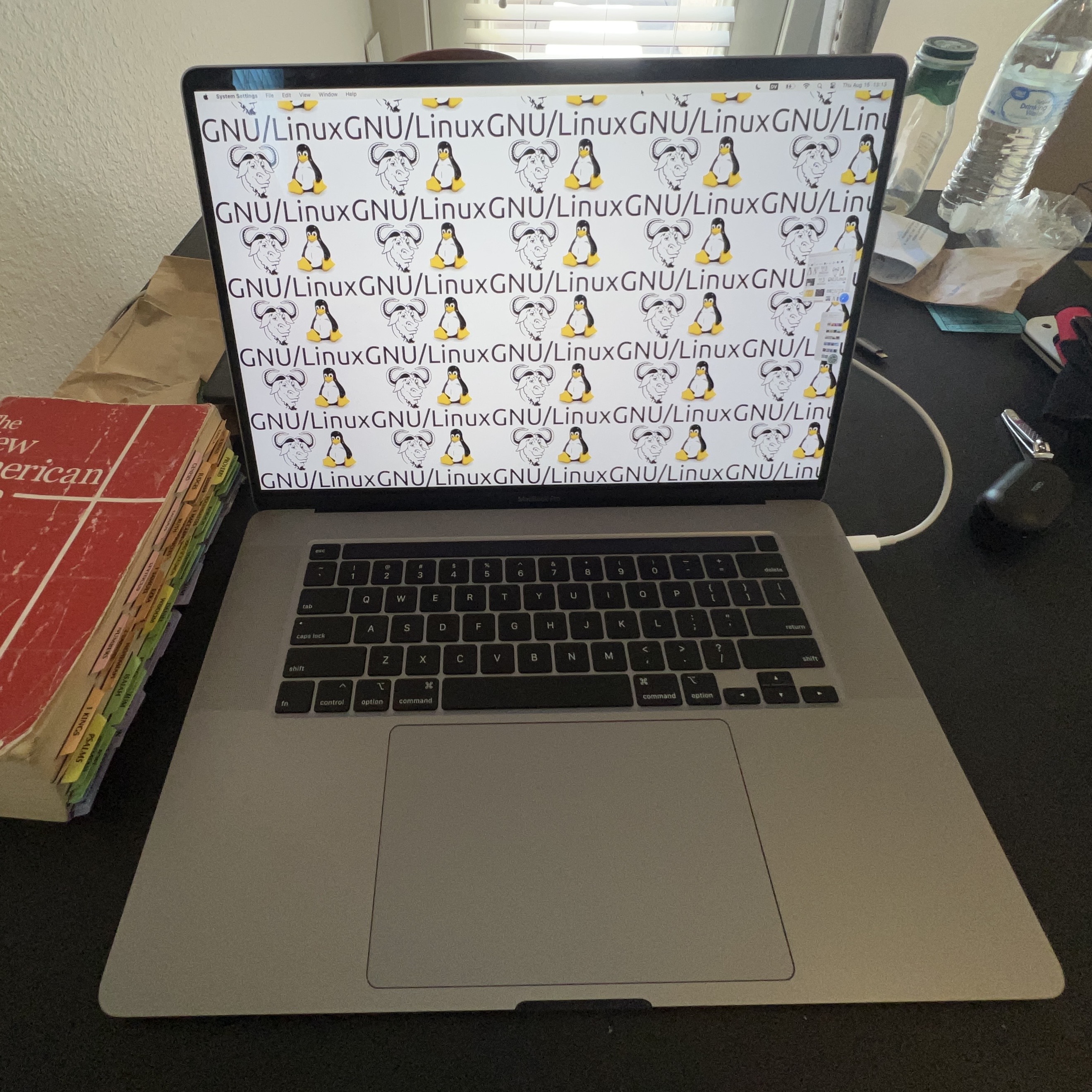this post was submitted on 16 Aug 2024
225 points (93.1% liked)
linuxmemes
21753 readers
783 users here now
Hint: :q!
Sister communities:
Community rules (click to expand)
1. Follow the site-wide rules
- Instance-wide TOS: https://legal.lemmy.world/tos/
- Lemmy code of conduct: https://join-lemmy.org/docs/code_of_conduct.html
2. Be civil
- Understand the difference between a joke and an insult.
- Do not harrass or attack members of the community for any reason.
- Leave remarks of "peasantry" to the PCMR community. If you dislike an OS/service/application, attack the thing you dislike, not the individuals who use it. Some people may not have a choice.
- Bigotry will not be tolerated.
- These rules are somewhat loosened when the subject is a public figure. Still, do not attack their person or incite harrassment.
3. Post Linux-related content
- Including Unix and BSD.
- Non-Linux content is acceptable as long as it makes a reference to Linux. For example, the poorly made mockery of
sudoin Windows. - No porn. Even if you watch it on a Linux machine.
4. No recent reposts
- Everybody uses Arch btw, can't quit Vim, <loves/tolerates/hates> systemd, and wants to interject for a moment. You can stop now.
Please report posts and comments that break these rules!
Important: never execute code or follow advice that you don't understand or can't verify, especially here. The word of the day is credibility. This is a meme community -- even the most helpful comments might just be shitposts that can damage your system. Be aware, be smart, don't fork-bomb your computer.
founded 2 years ago
MODERATORS
you are viewing a single comment's thread
view the rest of the comments
view the rest of the comments

well there is plenty of what is possible to try. but unless one had looked at the real cause i'ld suspect one of apples hardware backdoors to cause the crashes like if the backdoor doesn't work, crash the kernel, so we never loose control over the sheeapple thing. or more realistic if you want:
First maybe just crappy hardware:
There is a reason why i suspect apple's hardware, cause my shitty macbook at work should(!) go to something like hibernate, sleep, or its spyveillance-only mode when closing the lid, and it should also lock the screen when doing so, the actual results seem pure randomly choosen, sometimes the sleep mode survives the weekend with lots of accu left, sometimes its completely depleted and i even have to charge it for a while before it has enough power to show the charging logo. for security reasons i have to manually lock my screen, verify it and then close the lid, which is pure annoy. this could just be buggy hardware, a sensor so broken that reading its inputs directly could crash any OS that assumes i.e. no division by zero, pointers to nonexisting ram or whatever, and maybe apple just knows what faulty measurements mean what (but cannot make that stable too, only no crash occurs)
secondly with a hardware backdoor:
https://www.kaspersky.com/about/press-releases/2023_kaspersky-discloses-iphone-hardware-feature-vital-in-operation-triangulation-case
"The discovered vulnerability is a hardware feature, possibly based on the principle of “security through obscurity,” and may have been intended for testing or debugging. Following the initial 0-click iMessage attack and subsequent privilege escalation, the attackers leveraged this hardware feature to bypass hardware-based security protections and manipulate the contents of protected memory regions."
which is that (some/all?) iphones have at least one memory page where one only has to accidently or intentionally write something into it, that could trigger the backdoor feature to let you choose which memory address to overwrite with what bytes, bypassing every(!) security mechanism in hardware AND of course those made of software too. that is how i understood documentation and presentations about it. now apple said they "fixed" it in software, from what i remember that fix was just a "os preventing apps from writing to that memory backdoor page" thus not a fix but only a mitigation, while "fix" is more a lie than only misleading words to just pretend it wasn't permanent and unfixable. let us assume that linux does not include hardware backdoor mitigations for apple devices AND that apple placed the very same backdoor memory page into macbooks as well but maybe at (an)other physical address(es). now the code that runs on closing the lid "might" just reside at or write to the very same memory page on every boot for a given exact same kernel, which might be a memory page that acts the same or similar like that iphone hardware backdoor, overwriting some other memory page depending on what is actually written to the backdoor page which immediately crashes the kernel. if that's whats happening there, t2linux is not broken, but macbooks are just insecure costly (loss of money, time, security, trust, work performance, patents, stability, a.s.o. ...) waste.
how to find out? (maybe)
changin the kernel a lot by removing everything(!) not needed should in theory/hopefully also change the pages that would be affected when closing the lid. same effect: likely no backdoor. no effect: maybe something you deactivated, maybe yet another backdoor discovery.
it might also be solveable by sth like acpi settings or such, probably switchable from kernel boot cmdline , maybe change settings for hibernate / suspend to ram (does apple hardware even support such? i mean without the buggy behaviour i experience?)l
We at t2linux do know that the basic cause of crash, it's more of our module's fault now. The crash does not happen if you unload our hardware support module before sleep (and you can reload the module after waking it up), so people have been using this workaround and have some success out of this.